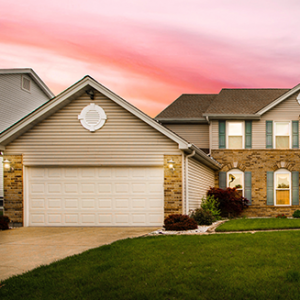-
Frequently Asked Questions
-
At RateGuru, we provide the best information on mortgage products available on the market. Whether it’s a first mortgage, mortgage renewal, CHIP reverse mortgage, renovation financing, or debt consolidation, the information on this website will help you choose the right mortgage product for your needs. This is a one stop shop for mortgage financing information. RateGuru is financially compensated by the product providers for sharing their information on the website. Customers can choose from hundreds of mortgage products at RateGuru and access the best interest rates on the market.
The most important reason for using a mortgage broker is they are truly the experts in the field. They represent you with the bank or lender and try to get you the maximum amount of mortgage at the best possible rates of interest. They are usually associated with multiple banks and financial institutions offering mortgage loans. They will find a mortgage lender who will offer a loan based on your financial situation. And when you buy a property, you don’t pay the mortgage broker any fees for their services. They save you time by doing the research for a suitable mortgage lender as well as guide you on the process which is complex.
When you are approved for a mortgage, the term of the loans is usually in 5 or 10 year increments. At the completion of a term, if the mortgage is not settled in full, a new term and interest rates are negotiated and renewed. Refinancing is when you decide to swap the existing mortgage deal with a completely different one. In fact, you do not have to wait for the current term of your loan to end before deciding to refinance the mortgage. It can be done at any time. This is a good option when looking to consolidate other high interest rate debt or if you need access to extra funds for renovations or life needs.
Most banks and financial institutions prefer to lend money to customers with good credit. This doesn’t mean people with less perfect credit can’t get a mortgage. The most important factor to a lender is a good, steady income source. They want to ensure you can repay the mortgage installments on time. For borrowers with poor or bruised credit, they will be required to make a larger down payment – likely more than 20% of the purchase price. In addition to this, the borrower may require a co-signor with a good credit score and someone who has a solid repayment history.
The rules for granting a mortgage loan for newcomers are constantly changing. A newcomer to Canada can access a mortgage with a larger down payment, up to 35% of the cost of the property. In addition, they have to prove they can afford mortgage payments for the next 12 months by providing bank statements from a Canadian bank. The amount has to be in the bank account for at least 30 days before they apply for the mortgage approval. The new comer also has to be a permanent resident. Proof of income is required to show repayment is possible and will be made on time. For a self-employed person to qualify for the mortgage, they would need to prove a two year self employment history.
According to the rules, the minimum amount of down payment required is 10% of the value of the property that costs more than 500,000. This amount, is however, limited to the amount over the 500,000. For instance, if the value of the property is $750,000, the down payment will be 5% of $500,000 (= $25,000) and 10% of the balance of $250,000 (= 25,000). Therefore, a total down payment of $50,000 is required.
If you have good credit and require a conventional loan (a loan that is not insured) you are required to put a 20% down payment. However, you can put as little as 5% down payment if you insure the mortgage with default insurance. If you have poor credit, this won’t be an option and you will be required to put a larger down payment – likely more than 20% depending on your circumstances.
The total amount of time a borrower takes to pay off the mortgage loan is known as the amortization period. If the borrower is able to pay the loan off in a shorter amount of time, he will pay a lesser amount towards interest as compared to repayment over a number of years. However, by opting for a longer amortization period, the monthly repayment amounts would be smaller than if the loan was paid in a shorter amortization period. As the borrower pays off each installment of the loan, the principal outstanding will reduce.
The mortgage term is the length of time you agree to a specified interest rate (variable or fixed) with a lender – typically between 5-10 years. The mortgage term is an important aspect to keep in mind. If you choose a longer term at a fixed rate, you are locked into the interest rate for the duration of the term. If you select a variable rate for the term, the market will dictate if this rate goes up or down during the agreed upon term.
Mortgage
A high ratio mortgage refers to those people who don’t have a 20% down payment and require mortgage default insurance by law. Such borrowers have to be approved for mortgage insurance from any one of the following insurers – CMHC, Genworth Canada or Canada Guaranty. If approved, the buyer may qualify for as much as 95% of the purchase price of the house. The approval is based on the borrowers employment history, income and length of employment; their credit score and the amortization term which is typically 25 years. In Canada, it is a federal requirement to have mortgage insurance on such loans as it protects the lender in case the borrower defaults.
A high ratio mortgage refers to those people who don’t have a 20% down payment and require mortgage default insurance by law. Such borrowers have to be approved for mortgage insurance from any one of the following insurers – CMHC, Genworth Canada or Canada Guaranty. If approved, the buyer may qualify for as much as 95% of the purchase price of the house. The approval is based on the borrowers employment history, income and length of employment; their credit score and the amortization term which is typically 25 years. In Canada, it is a federal requirement to have mortgage insurance on such loans as it protects the lender in case the borrower defaults.
A high ratio mortgage refers to those people who don’t have a 20% down payment and require mortgage default insurance by law. Such borrowers have to be approved for mortgage insurance from any one of the following insurers – CMHC, Genworth Canada or Canada Guaranty. If approved, the buyer may qualify for as much as 95% of the purchase price of the house. The approval is based on the borrowers employment history, income and length of employment; their credit score and the amortization term which is typically 25 years. In Canada, it is a federal requirement to have mortgage insurance on such loans as it protects the lender in case the borrower defaults.
Default insurance, also known as mortgage insurance, is the most favoured option for people who are unable to afford a large down payment but dream to buy a house. Default insurance not only helps people achieve their dream of owning a home but also protects the lenders in case the borrower fails to repay the loan amount. This insurance is mandatory for home buyers who put less than 20% as the down payment. Default insurance is available for homes valued under one million. The premium depends on the amount borrowed, along with employment details, type of property and the cost of the home. It is important to note this is not mortgage life insurance, and does not cover the mortgage loan in the event of death.
Under the New to Canada program, people who have come to Canada within the last five years and are looking to buy a home here qualify to buy a house property for a down payment as low as 5% of the cost of the property. Some of the requirements to qualify are:
- The person should have immigrated to Canada within the last 5 years.
- They should be either permanent residents or at least have a work permit.
- While calculating the debt service ratio, all the debts that the person owes worldwide, must be taken into account.
- They cannot use a guarantor.
- A person who is a foreign diplomat or is political appointee and who does not pay any income tax in Canada does not qualify for this program.
Buying a new home is always an exciting prospect. For first tine home buyers, the Canadian government has set up programs to make the purchase easy by granting several concessions. The list of incentives begin with easing the minimum down payment requirement to 5% of the cost of the home. The people buying their first house can avail the First Time Home Buyer tax credits, wherein he gets a $5,000 income tax credit, as well as $750 relief in federal taxes. These credits are subject to certain conditions. The buyer can withdraw an amount upto $35,000 from his RRSP account towards purchasing a property that qualifies certain requirements. The buyer could also qualify to recover a portion of the HST or the GST paid to purchase the house.
Need more help? We are here to help!
Mortgages
About Us
Copyright © 2020 - rateguru.mortgage





